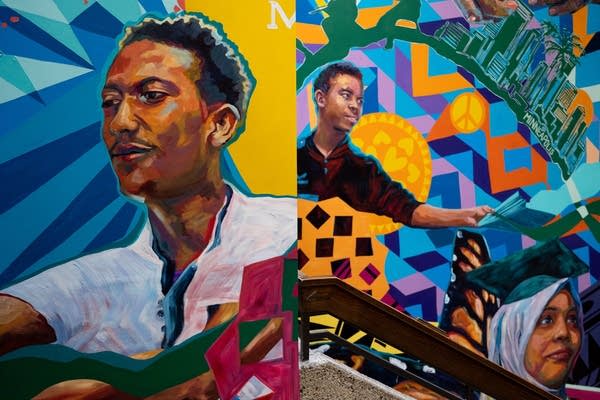To tackle the achievement gap, you have to tackle bias

A mural inside of Wellstone International High School depicts the brand-new refugee and immigrant students it serves in Minneapolis on Aug. 29, 2019.
Evan Frost | MPR News file
Go Deeper.
Create an account or log in to save stories.
Like this?
Thanks for liking this story! We have added it to a list of your favorite stories.


